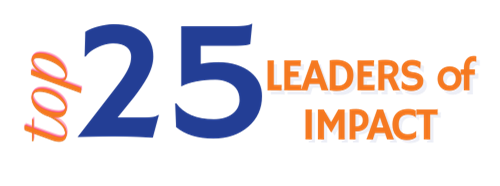Employers around the world continue to struggle with how to appropriately address and accommodate individuals with disabilities in the workplace. But of all disability types, mental health issues are still among the most invisible, stigmatized and misunderstood.
Springboard Consulting has heard many employers say they would not hire someone if they knew they were currently experiencing depression or some other mental health issue. If this were not alarming enough, consider that researchers analyzing results from the U.S. National Comorbidity Survey, a nationally representative study of Americans ages 15 to 54, reported that 18 percent of those who were employed said, they “experienced symptoms of a mental health disorder in the previous month.” The most common symptoms were depression, stress and anxiety, and substance abuse. In fact, between 2003 and 2013, there was a 56 percent increase in depression related EEOC workplace discrimination claims.
Human resource professionals are typically the go-to folks in the organization relative to the employment of individuals with disabilities, but most say they are not properly trained for addressing many of the issues that come up, especially in the mental health arena. And even when a manager wants to help, they are typically not equipped with the training to do so.
As with any disability, if the individual is not communicated with appropriately or does not receive the appropriate accommodation, they are not going to be as productive and engaged as they could be.
A major part of destigmatizing a mental health or other disability in the workplace is about creating a culture where employees feel they can safely, comfortably, and appropriately disclose their disability without negative repercussions. To accomplish this, today’s corporate best practices include disability etiquette and awareness training; immersion training on accommodations and the interactive dialogue for human resources professionals; hiring managers and recruiters; the use of a Disability Disclosure Guidance Tool; disclosure road shows and video vignettes. By doing these things, all of which Springboard Consulting provides worldwide, companies demonstrate their interest in and commitment to successfully mainstreaming individuals with disabilities into their workforce and workplace, including those with mental health issues.
A really good place to begin the education portion of this work is to begin ridding ourselves of the conscious-bias that exists toward folks experiencing mental illness and with most disabilities. It’s about increasing awareness, reducing stigma, and encouraging employees to develop help-seeking behaviors and then, of course, making the help available. When asked, many managers have said they think an employee is trying to take advantage of the system when they request an accommodation due to stress or even depression. So how do you think these managers will respond to the individual who does disclose? Probably not well. We must remember that there is a connection between mental health and productivity; meaning that if employers do nothing, related costs will be sure to increase.
While many companies offer Employee Assistance Plans (EAPs) – which can offer wonderful resources for individuals with disabilities, including mental illness – EAPs cannot replace the work that must be done internally with Human Resources, Talent Acquisition, and management.
Given that mental health issues are prevalent in today’s workplaces, every employer should begin taking the necessary steps to develop an end-to-end, comprehensive worksite education program that will appropriately and effectively provide support to those who need it. For employers that do, it will mean good business; for the employees it impacts, it will mean the world.
Nadine Vogel is the CEO of Springboard Consulting LLC. Founded in 2005, Springboard is recognized as the expert in mainstreaming disability in the global workforce, workplace, and marketplace. Serving corporations and organizations throughout the U.S., Canada, Europe and Asia, Springboard has become a trusted partner in relation to disability issues and initiatives across virtually every business category. Nadine is also the author of DIVE IN, Springboard into the Profitability, Productivity and Potential of the Special Needs Workforce.









